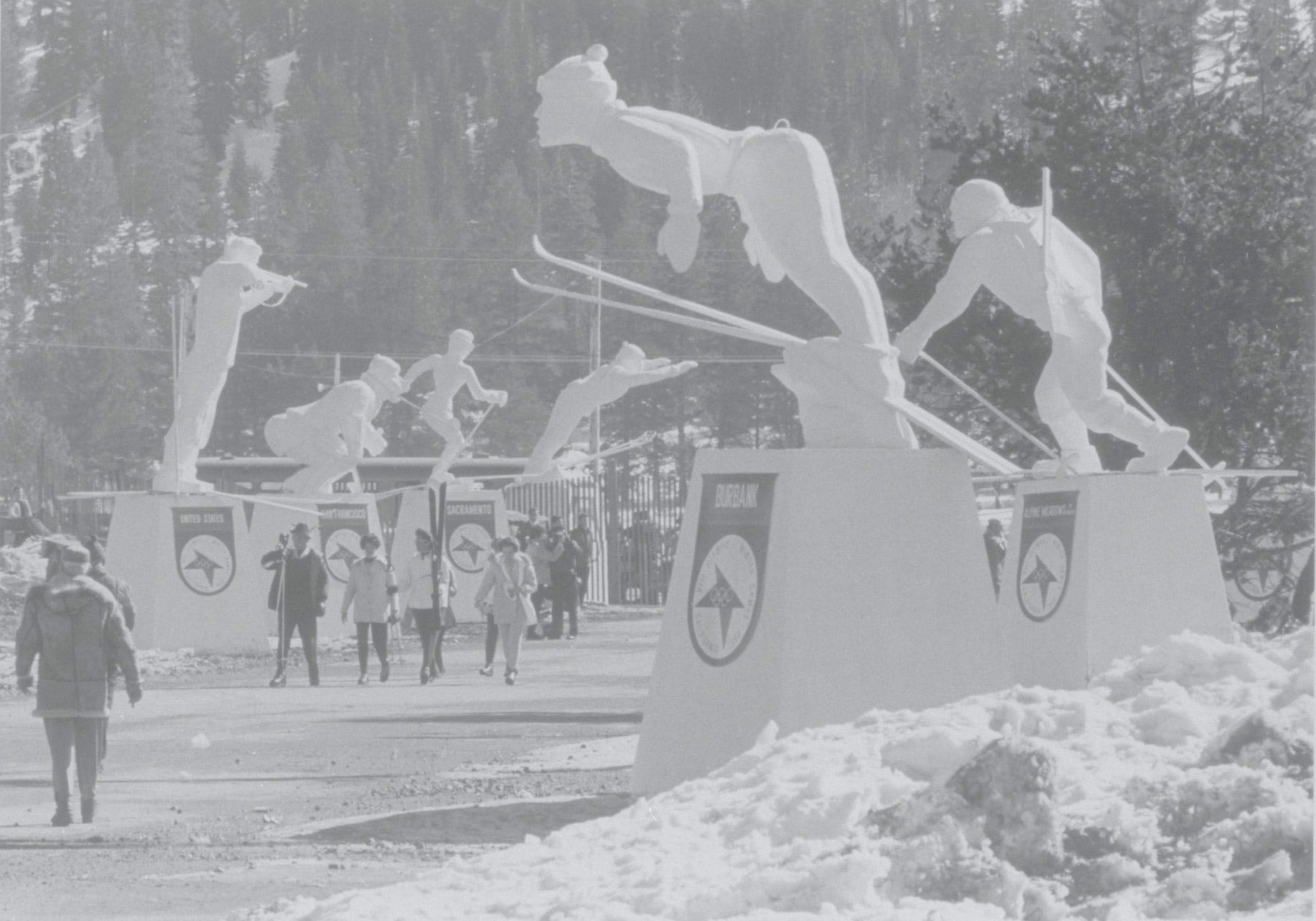The legacy of Squaw Valley 1960
The Closing Ceremony took place on 28 February 1960, following the ski jumping competition and the final match of the ice hockey tournament. It played out in front of a capacity crowd at the Blyth Memorial Arena, with many more spectators having gathered outside.
The flag bearers of the participating nations paraded around the arena and were followed by the athletes themselves, who mingled with each other as they greeted the crowd, all to the sound of the Parade des Olympiens. The flag bearers then formed a circle around the main stage as the flags of Greece, the USA and Austria (the host nation of the 1964 Winter Games in Innsbruck) were hoisted aloft and the three national anthems were played.
After declaring the VIII Olympic Winter Games closed, IOC President Avery Brundage said: “In accordance with tradition, I call upon the youth of all countries to assemble four years from now at Innsbruck, Austria, there to celebrate the IX Olympic Winter Games. May they display cheerfulness and concord so that the Olympic Torch will be carried on with ever greater eagerness, courage and honor for the good of humanity throughout the ages.”
The Olympic flag was then slowly lowered to the sound of the Olympic Anthem and the flame was extinguished, as thousands of balloons were released into the sky.
The Official Report noted: “The snow and ice on which were staged the VIII Olympic Winter Games have long since fled before the burning rays of the awesome Nevada sun. Gone, too, are the excited throngs which roared their delight at a brilliant performance or stood respectfully silent through a heart-warming ceremony.

“Remaining, unforgettably carved in memory, is the vivid recollection of a splendid drama unfolded in a wondrous setting, a drama at once majestically staged and gloriously acted. Remaining, too, are the tangible things which will forever evoke glimpses of the grandeur which was Squaw Valley's during the magnificent eleven days of a California February.
“The Games themselves were a remarkable success, particularly in the realm of sportsmanship and high spirit. This is not the decision rendered by those preparing this work for the California Olympic Commission, but the opinion of the athlete and of the official and of the spectator, the true principals in this pageant.”
In seeing the Games staged at a site once completely lacking in facilities, Alexander Cushing had more than fulfilled his dream. Firmly established as an Olympic Winter Games venue, California continues to treasure its memories of Squaw Valley 1960, despite the passing of the years, while the resort itself is still home to some of the facilities built for the event and remains a high-quality and accessible ski destination that is hugely popular with the inhabitants of the Golden State.
The important legacy left by the VIII Olympic Games in California’s Sierra Nevada was clear for all to see in February 2010, when the 50th anniversary of the event was celebrated over an eight-day period.
“Thanks to the 1960 Games we have a superb airport in Reno, the Interstate 80 highway, all these shops and this wonderful ski area,” said a local resident, who, like all of Squaw Valley’s inhabitants, looks back with fondness and passion on the VIII Olympic Winter Games, which put the ski resort and the Lake Tahoe area firmly on the world map.